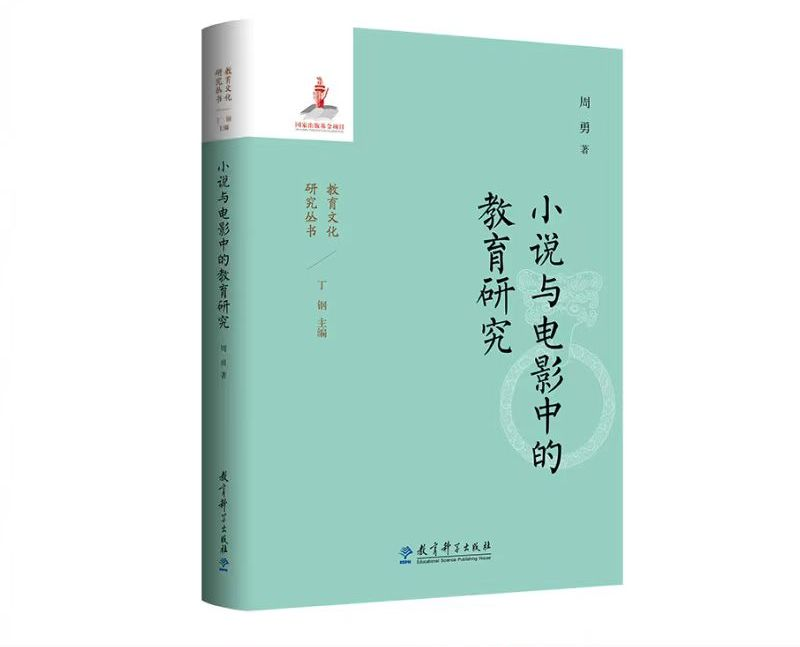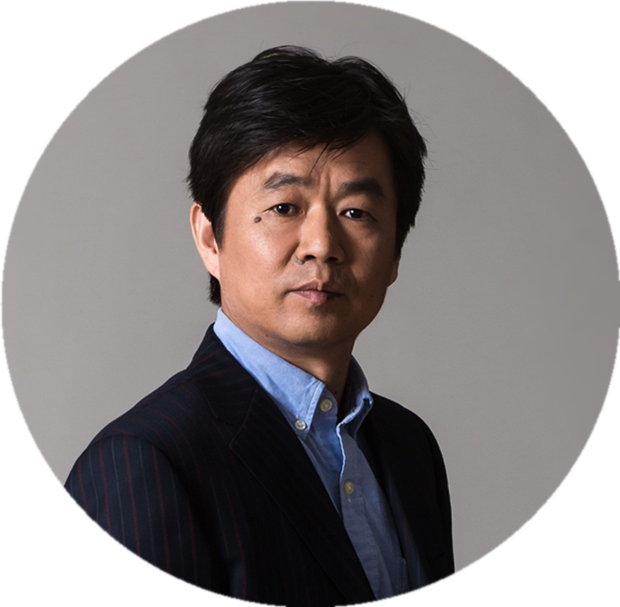ICI Academic ║Congratulations on New Book by Professor Zhou Yong- Educational Research in Novels and Movies
2024-06-24
Following the publication of the 500,000-word book "A Century of Pathfinding: National Rejuvenation and Curriculum Reform in Modern China", Professor Zhou Yong's another book "Education Research in Novels and Movies" was officially published by the Education Science Press. The new book interprets classic novels by Lu Xun and Shen Congwen, as well as famous films by Hou Hsiao-hsien, Edward Yang, Wong Kar-Wai, and Chen Kaige from specific educational research perspectives such as educational cultural studies, educational sociology, and educational philosophy, and reveals the educational issues contained in them.

Zhou Yong, Education Science Press
"Education Research in Novels and Films" is a volume in the "Education and Culture Research Series". This work focuses on non-school educational novels and films that have a greater impact on individuals and society. It expands and updates existing novel and film research in the field of educational theory, making educational research more relevant to educational issues encountered by ordinary students or other individuals in real cultural and social backgrounds and even daily life. This book provides a paradigm reference for expanding the horizons and topics of educational theoretical research, and provides an empirical fact base for these educational theoretical research to be closer to the real world.

Professor and doctoral supervisor at the Institute of Curriculum and Instruction of East China Normal University. His research areas include Chinese culture and education, educational sociology, and curriculum history.
He is also the vice chairman of the National Professional Committee of Educational Sociology and the vice chairman of the Young and Middle-aged Education Theorists Branch of the Chinese Society of Education.
Excerpt from the Introduction to Educational Research in Novels and Movies
Before the emergence of universities and professional education scholars, educational research had long been a theoretical activity of philosophers and politicians. Confucius, Mencius, Socrates, Rousseau, Kant, Wang Yangming, Liang Qichao, etc. can all prove this point. After the emergence of professional education scholars, they relied on conceptual tools from philosophy, history, psychology, management, health, sociology and other disciplines to engage in educational research, and developed educational philosophy, educational history, educational psychology, and educational management. , education and health, educational sociology and other educational sub-disciplines and educational research fields. In recent years, the educational community has begun to introduce artificial intelligence, brain science, neuroscience, etc. to construct new educational disciplines and educational research fields. However, until today, the educational circles have not listed “educational literature” as a branch subject. Many senior and junior education scholars do not advocate the construction of educational literature even though they are very fond of poetry, novels, art films and other literature. At the beginning of the 21st century, when Professor Ding Gang pioneered narrative and cultural studies in the field of education, he went deep into the field of literature due to his interdisciplinary background. However, he also did not develop educational literature. Instead, he searched for narrative models and theories of culture studies in the literary field that deserved the attention of educational research.
In the field of education, educational literature has always been like an invisible and intangible black hole. At present, only He Xiaoxing, an educational sociologist, has done "disciplinary thinking" on "the non-birth of educational literature". He believes that starting from the "university enrollment" stage, the possibility of the birth of educational literature has been stifled by the ideological habits of the educational community. Therefore, he call on the educational community to break through the shackles of the habits and put "calling educational literature" on the disciplinary development agenda.
This book can provide a positive response to He Xiaoxing's early thinking, but the goal is not to construct educational literature in the disciplinary sense - this is obviously far beyond the responsibility of an individual. It is just about what kind of disciplinary content system educational literature should or can have. The problem cannot be answered theoretically. This book can only attempt to conduct some path-finding experiments in educational literature. Specifically, it starts from educational research, sorting out some novels and film texts, especially from the perspectives of educational cultural studies, educational sociology, etc., to interpret its educational research connotations. It regards some outstanding writers and directors as educational culture researchers, educational sociologists or educational philosophers, and see how they reveal and answer the issues of educational culture, educational sociology or educational philosophy that they pay attention to.
Such research experiments cannot contribute to educational literature in the disciplinary sense, but they are helpful for educational cultural research, educational sociology, educational philosophy, etc. to cope with the many difficulties they are currently facing, especially the lack of vision and issues. For example, educational and cultural studies and educational sociology attach great importance to examining rural education in the context of rural social and cultural life. They also realize that attention should be paid to the drastic transformation of urban social culture that may cause educational problems that are difficult for schools to manage. However, whether it is the former, which has accumulated a lot, or the latter, which has yet to be developed, many shortcomings can be found. For example, what kind of questions can be raised by observing educational reform based on childhood rural social and cultural memories? What kind of life education problems can be caused by the drastic transformation of urban social culture driven by rapid economic development that schools are easy to ignore or unable to deal with? How impoverished students gain cultural status and rise in urbanization and even international education systems? Educational cultural research and educational sociology have not yet fully explored these issues. Some writers and directors have paid close attention to these issues and used novels or movies to present their field observations and problem revelations. Analyzing their novels and film texts can enrich the factual accumulation and theoretical analysis of educational cultural studies and educational sociology on these issues.
Based on the above considerations, this book selects novels and art films worthy of interpretation to sort out what kind of educational research some outstanding writers and directors have conducted, and to provide a reference for students from educational circles, especially educational cultural studies, educational sociology and educational philosophy, with new paths for educational research and theoretical exploration, allowing them not only read the philosophical, sociological or cultural research works of Confucius, Plato, Rousseau, Dewey, Hoggart, Foucault, Bourdieu, Scott and others, but also interpret excellent novels and art films, such as "Kong Yiji", "Hometown", "Border Town", "Love in the Wind", "Yiyi", "Chungking Express", "Yellow Earth" and "With You" mentioned in this book etc., or other favorite novels and movies, from which they can look for educational issues from a social and cultural perspective, as well as their factual expressions and social and cultural sources, and then gradually learn how to conceive educational research based on social and cultural observations and life experiences and expressed educational exploration and problem discovery with vivid narratives like outstanding writers such as Lu Xun, Shen Congwen, Hou Hsiao-hsien, Edward Yang, Wong Kar-wai, Chen Kaige, etc.
This will not only enrich the existing empirical basis and theoretical imagination in educational fields such as educational cultural studies, educational sociology, and educational philosophy, but also help the educational field to develop educational literature in the future and "summon" educational literature that has not been born for a long time. .